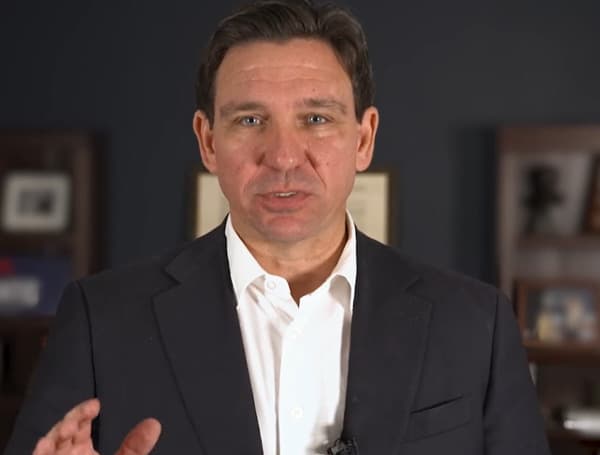In a move to further combat human trafficking in the state, Florida Governor Ron DeSantis Friday signed House Bill (HB) 7063 into law. The legislation aims to bolster existing anti-trafficking measures and introduce new provisions to protect potential victims and hold perpetrators accountable.
HB 7063 encompasses a range of provisions designed to address various aspects of human trafficking. Notably, the law raises the minimum age for employment in adult entertainment establishments to 21, aiming to protect young people from exploitation.
Additionally, it mandates the prominent display of human trafficking awareness signs in various public spaces, including rest areas, emergency rooms, and adult entertainment venues.
Read: Florida Migrant Medicaid Costs Plummet Amidst DeSantis Illegal Immigration Crackdown
The bill also extends the operations of the Statewide Council on Human Trafficking, ensuring continued coordination and support for anti-trafficking initiatives across the state. Furthermore, it requires adult entertainment establishments to verify the identification of all entertainers to prevent the exploitation of minors and undocumented individuals.
Governor DeSantis emphasized the importance of these measures in safeguarding vulnerable individuals and dismantling human trafficking networks operating within the state.
He stated, “Human trafficking is a heinous crime that preys on the most vulnerable members of our society. This new law equips us with additional tools to combat this scourge and protect those who are at risk.”
The legislation has received widespread support from anti-trafficking organizations and advocates, who commend the state’s commitment to addressing this critical issue. However, some critics argue that the law’s focus on adult entertainment establishments may disproportionately impact certain communities and potentially drive the industry underground.
Read: Unpacking Florida’s Homestead Exemption Overhaul HB 7019 Signed By Gov. DeSantis
Despite these concerns, proponents of HB 7063 maintain that the law’s comprehensive approach will significantly contribute to the ongoing fight against human trafficking in Florida. They believe that the combined efforts of law enforcement, service providers, and public awareness campaigns will create a safer environment for all residents and visitors to the state.
As the new law takes effect, Florida authorities are expected to ramp up enforcement efforts and continue their collaboration with community partners to identify and assist victims of human trafficking. The state’s commitment to tackling this complex issue demonstrates a proactive stance in protecting vulnerable individuals and upholding human rights.
Help support the Tampa Free Press by making any small donation by clicking here.
Android Users, Click To Download The Tampa Free Press App And Never Miss A Story. Follow Us On Facebook and Twitter. Sign up for our free newsletter.


